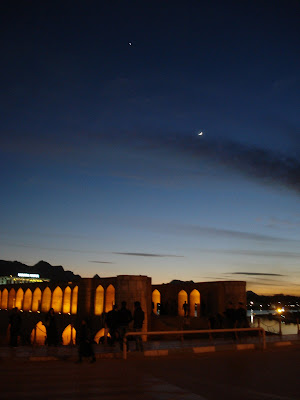A Boys’ Country

As all other countries in the Middle East, Egypt is a typical boys’ country. Women and girls after puberty are rarely seen on the streets, and if, they are more or less veiled. When I strolled through the mayhem of Cairo last week, I identified maximum 10 per cent females in the streets. Boys were everywhere, holding hands, praying in the middle of the alleyway, being active. In the evenings, more women showed. Mothers and their half-grown daughters and little kids went shopping. Downtown and in the Islamic part of Cairo, almost all of them were veiled.



In the fancy restaurants on the shores of the Nile or in Al Azhad Park there was, of course, a completely different picture. The fun-loving, young, bold and beautiful celebrated birthday parties and enjoyed life. Young couples (of course not married) met for romantic candle-light dinners. Only some of the girls were wearing more fashionable head scarves, très chic.


I talked with many young lads in the little shops of Khan Al Khalili, the main souq, and with “students” of Islamic Architecture and Antiquities in the Grand Al Azhar Mosque. They are 24, 26 years of age and rarely married. No money. The question “Do you have a girlfriend?” is sometimes answered slowly, or not at all. “Yes. But no sex, only love.”
What I have heard is that the situation is getting worse. Economy seems to be a disaster. Unemployment may be 25 per cent. Especially the youngsters seem not to have a real future. And after all, Muslim Brothers are on the rise. I have never heard so many calls for prayer than during these ten days in Cairo, not even in Kuwait. At least, the muezzin who woke me up every morning at 4:30 am had a nice voice and did a good job. Allāhu akbar, 'al-lā ilāha illā-llāhu, five times a day (or even more). When the personal situation gets miserable, religion becomes more important, as consolation, as hope, at least for the aftermath. I do not want to entertain here in further detail on the dangerous mix of being young male, Muslim, sexually frustrated and without any social perspective. It’s well-established. Irrational thinking conveyed by religious ratters may have deleterious effects.
Are the boys oppressing, controlling, the women, I was recently asked. I really don’t know. Arab women may be amazingly self-confident. I met an extremely competent (and attractive, albeit veiled) female guide in Beit el-Suhami, a lovingly restored private mansion north of Khan Al-Khalili. Another young Cairene woman with a strong American accent was definitely flirting (and so was I) when trying to convince me that this was the shop for tribal Bedouin rugs I was actually looking for.
I got to know many Arab women, in particular our mainly female students in Kuwait. They are as self-confident as their Norwegian counterparts. But I have to admit that I’ve got only a very superficial insight into daily family life in Muslim societies. Religious fundamentalism will turn back the clock, I am afraid.



Comments